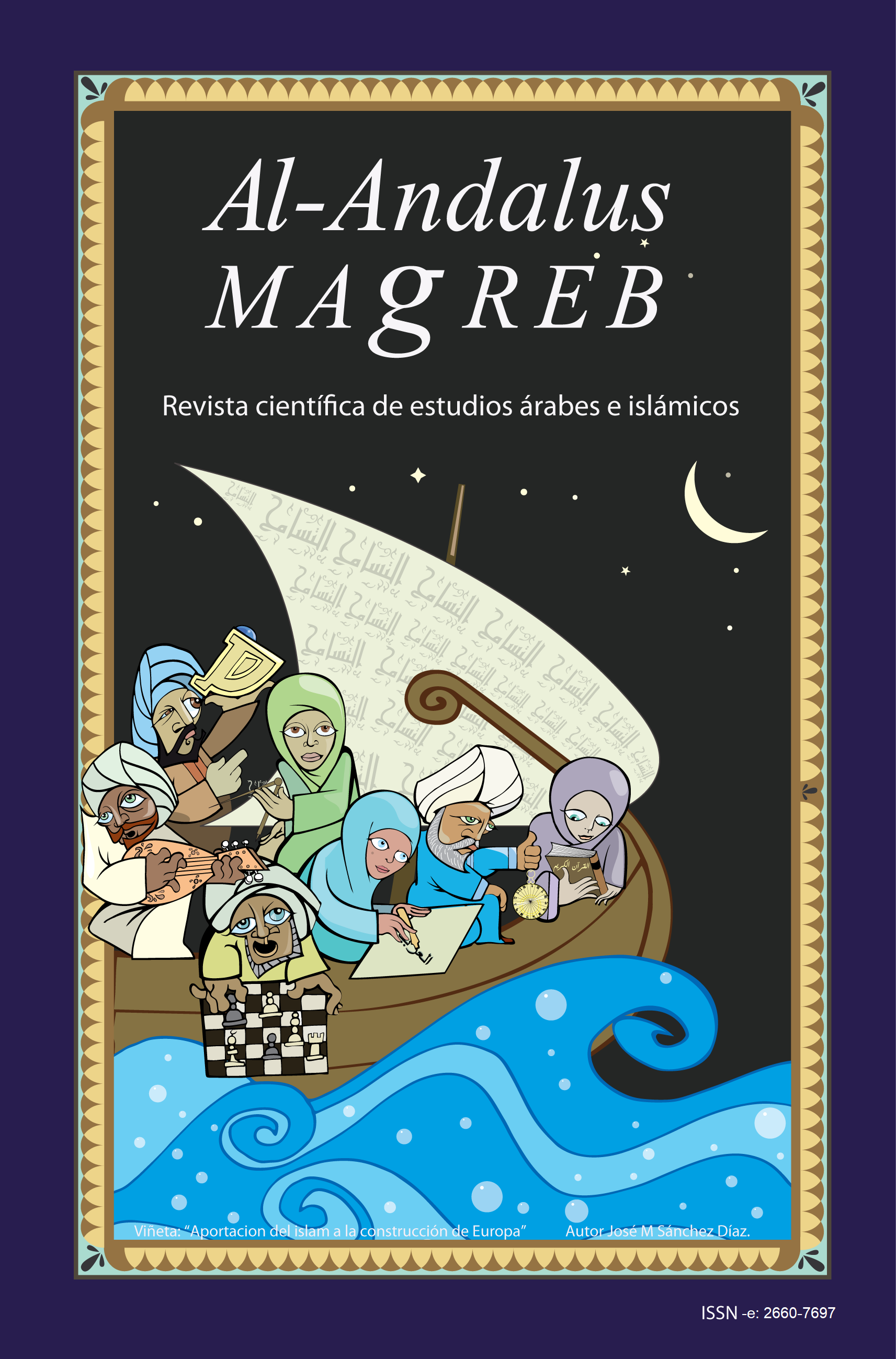Arabic students of Moroccan origin at the Autonomous University of Madrid: awareness and linguistic identity

Downloads
- PDF (Español (España)) 115
- EPUB (Español (España)) 79
- VISOR (Español (España))
- MOVIL (Español (España))
- XML (Español (España)) 84
DOI
https://doi.org/10.25267/AAM.2019.i26.6Info
Abstract
«Arabic students of Moroccan origin at the Universidad Autónoma of Madrid: Linguistic awareness and identity». In this paper, we present the results of a survey, conducted at the Faculty of Letters of the Universidad Autónoma of Madrid, during the academic year 2017-2018. Thirty-one students participated in the survey; all of them are of Moroccan origin and all majoring in Asian and African Studies, Arabic philology. We aim to continue working in this direction and offer this questionnaire to other students with Moroccan background, who study at other Spanish universities. The survey consists of forty-three questions and has the following sections: personal data, learning, native language level, level of Spanish and classical Arabic, daily use of language skills and some personal considerations about the languages that they know.
Keywords
Downloads
How to Cite
License

This work is licensed under a Creative Commons Attribution-NonCommercial-NoDerivatives 4.0 International License.
Those authors who have publications with this journal, accept the following terms:
a. Authors may retain their copyright and guarantee the journal the right of first publication of their work, which will be simultaneously subject to Licencia de reconocimiento de Creative Commons that allows third parties to share the work as long as its author is indicated. and its first publication this journal.
b. Authors may adopt other non-exclusive license agreements for the distribution of the version of the published work (eg: deposit it in an institutional electronic file) provided that the initial publication in this journal is indicated.
c. Authors are allowed and recommended to disseminate their work through the Internet (eg: in institutional telematic files or on their website) once the manuscript is accepted, which can lead to interesting exchanges and increase citations of the published work. (See El efecto del acceso abierto).
References
AGUILAR, Victoria & FERNÁNDEZ Fonfría, Lidia. 2016. «La conciencia lingüística de los estudiantes de árabe en España». En: Identidad y conciencia lingüística. Actas del VI congreso internacional de árabe marroquí. Francisco Moscoso García & Adil Moustaoui Sghir (eds.). Madrid, Universidad Autónoma de Madrid. pp. 75-116.
DE RUITER, Jan Jaap & ZIAMARI, Karima. 2014. Le marché sociolinguistique contemporain du Maroc. Paris, L’Harmattan.
ELINSON, Alexander E. 2013. «Dārija and changing writing practices in Morocco». International Journal of Middle East Studies 45, pp. 715-730.
MOSCOSO GARCÍA, Francisco. 2015. «El árabe ceutí, una lengua minorizada de España». Revista de Estudios de Asia y África 50, 2, pp. 395-493.
MOSCOSO GARCÍA, Francisco. 2016. «Argumentos en defensa del árabe literal en Marruecos». En: Francisco Moscoso García & Adil Moustaoui Sghir (eds.). Identidad y conciencia lingüística. VI congreso de árabe marroquí. En: Colección Actas CD 14. Madrid, Universidad Autónoma de Madrid, pp. 165-191.
VALERA LABORDA, Abraham & AGUILAR, Victoria. 2013. «¿Cómo enseñamos árabe? La voz de los alumnos». Revista de Estudios Internacionales Mediterráneos 15, pp. 179-204.
<https://revistas.uam.es/index.php/reim/article/view/926> [06 de octubre de 2018].
YOUSSI, Abderrahim. 1992. Grammaire et lexique de l’arabe marocain moderne. Casablanca, Wallada.






